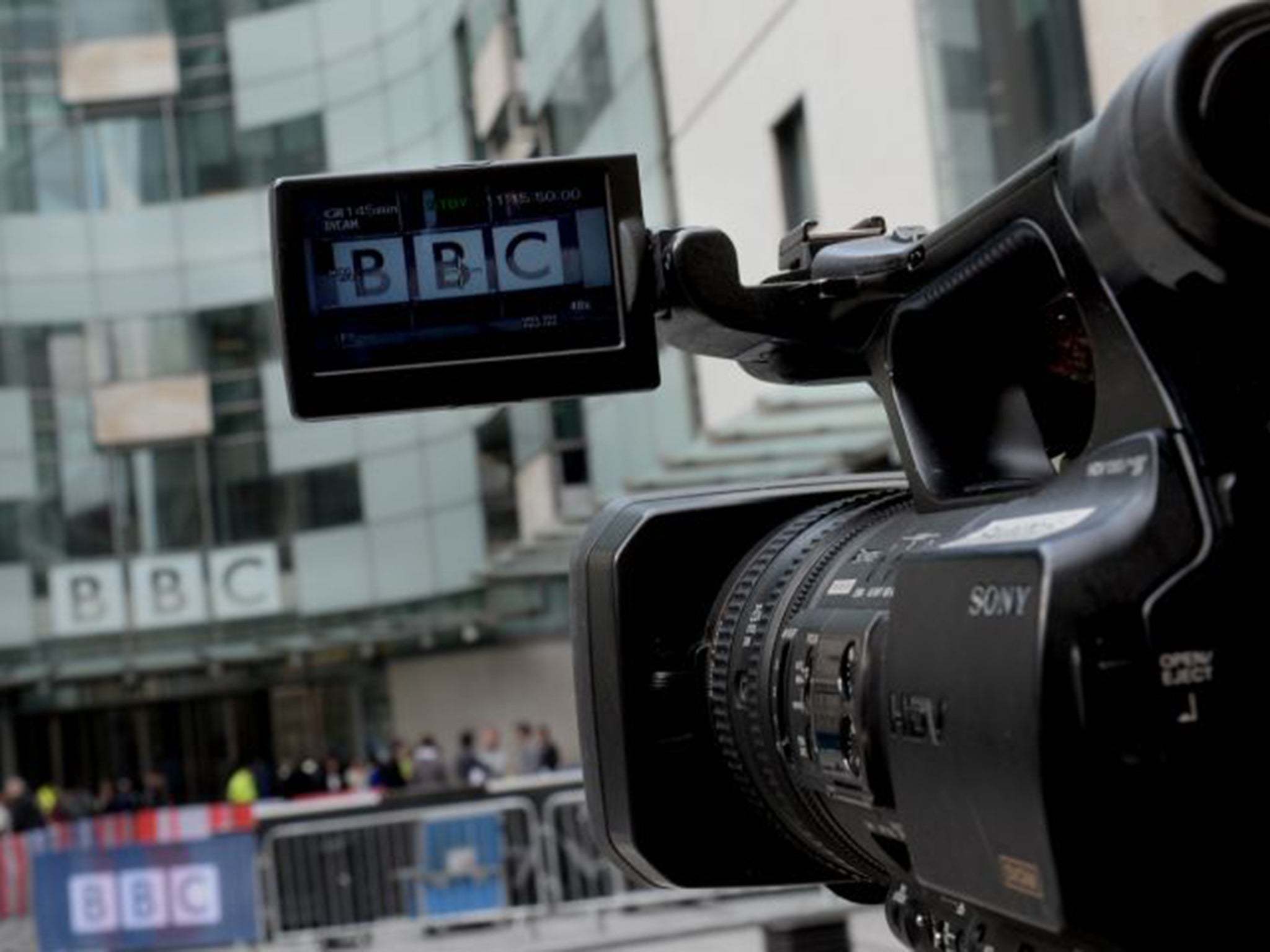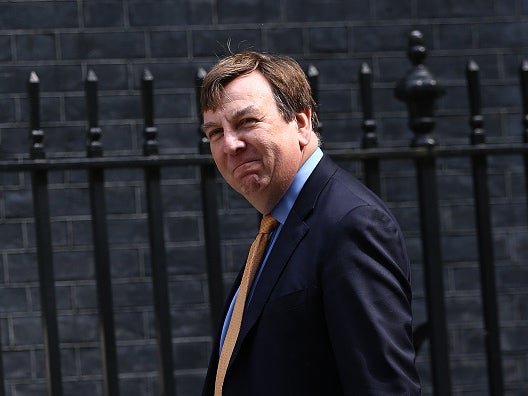The Media Column: Accepting the cost of over-75 licences marks a significant shift for BBC
The BBC need just look across the Atlantic to see how asking the public to make a contribution for programming can be successful

Your support helps us to tell the story
From reproductive rights to climate change to Big Tech, The Independent is on the ground when the story is developing. Whether it's investigating the financials of Elon Musk's pro-Trump PAC or producing our latest documentary, 'The A Word', which shines a light on the American women fighting for reproductive rights, we know how important it is to parse out the facts from the messaging.
At such a critical moment in US history, we need reporters on the ground. Your donation allows us to keep sending journalists to speak to both sides of the story.
The Independent is trusted by Americans across the entire political spectrum. And unlike many other quality news outlets, we choose not to lock Americans out of our reporting and analysis with paywalls. We believe quality journalism should be available to everyone, paid for by those who can afford it.
Your support makes all the difference.You can help preserve a place for investigative journalism by making a pledge to the BBC today. Just £10 will help us deliver a new series of Panorama.”
The BBC’s optimistic invitation for the over-75s to voluntarily pay for their free TV licences marked a potentially significant shift in the funding of British public service programming.
Asking those wealthy enough, who truly value the BBC’s services, to make a contribution places the BBC on a path to subscription funding and the kind of pledge drives that sustain its American cousin, PBS, which relies on telethons, grants and donations to bankroll its educational, arts and documentary programming.
The offer to viewers – or, more likely, the elderly, middle-class listeners of Radio 4 – to opt-in to the licence fee came from James Heath, the BBC’s director of policy, who said the Budget deal, which loaded the costs of funding licences for the over-75s on to the corporation, would equate to a cut in funding available for BBC services of about 10 per cent.
This placed a slightly different gloss on the mantra repeated by Tony Hall, the BBC director-general, and his senior executives, that the shotgun deal imposed by the Treasury after a week of negotiations provided “flat cash funding” for the BBC’s services.

The BBC clung on to the positives wrung from George Osborne. Increasing the licence fee in line with CPI over the next charter period should bring an additional £350m in income. Modernising the licence fee, to adapt it to cover catch-up as well as live TV, will bring in £100m – £50m less than previously estimated. The £150m a year being used to support broadband roll-out will be phased out.
The BBC is coy about estimating the future cost of the over-75s licence fee burden, which could double from the £725m taken out of the licence fee in 2021 to a figure well over £1bn by 2040.
This craven acceptance of an item of Government social policy with unknown future financial consequences is why nearly every former BBC chairman has lined up to condemn the agreement – which bypassed the seemingly doomed BBC Trust, led by Rona Fairhead.
Deploying the nuclear resignation threat would have engulfed the corporation in another crisis and made coverage of Mr Osborne’s Budget particularly interesting.
Mr Hall and his team agreed to take what was on offer, providing some level of financial certainty for the immediate years ahead, rather than gamble on what could yet prove a tougher settlement imposed by John Whittingdale, the BBC-sceptical Culture Secretary, when the charter review process is concluded.
That review will examine the entire size, scope and purposes of the BBC and is expected to produce some unpalatable conclusions for executives.
A Green Paper, to be published by the DCMS on 16 July, will reflect Mr Whittingdale’s belief that the BBC must not ape commercial formats – such as with its talent show The Voice – and should instead focus on “public service” programming. This proscription is at odds with the Chancellor’s stated conviction that the BBC should avoid “niche” programming and must instead appeal to all viewers with entertainment hits.
By taking its medicine now, the BBC hopes to avoid the estimated £200m annual cost of decriminalising non-payment of the licence fee – the subject of an inquiry by David Perry QC, which will publish its report imminently.
Mr Whittingdale has the impact of the BBC’s website on local and national newspapers in his sights. The role of BBC Worldwide, the corporation’s commercial wing which returned £173.8m to the BBC last year, will come under scrutiny, with some critics calling for a sell-off.
Ofcom is primed to take a greater regulatory role over the BBC’s content and services should the trust be axed. If the over-75s licence fee wasn’t a resignation issue for BBC bosses, protecting the independence of the BBC’s journalism would surely be, if it were threatened by a new regime.
Mr Whittingdale is well aware that Conservative backbenchers remain highly critical of the BBC’s election coverage and its threat to “empty chair” the Prime Minister if he failed to take part in live party leader debates.
“The question of how the BBC meets its impartiality requirements is certainly part of the charter review process, as that forms an essential component of its governance,” the Culture Secretary said.
“The BBC Trust adjudicates complaints against the BBC about impartiality at the moment. Some people have questioned that, and it is certainly something that we will be considering.”
The wisdom of the BBC’s bowing to the Treasury’s licence free demand will become clear only if it can fend off further incursions into its core activities during the charter review.
Tony Hall has promised further job cuts and efficiency savings to meet the continued downward pressure on funding – a plan to gut the £66m BBC News channel or move it online may cause more squeals from politicians than viewers. But the emergency licence fee deal places the BBC at a disadvantage before the charter review has properly begun.
It is as if the penalty shootout was held before the match started, and the Treasury won. The voluntary appeals for public financial support could become a long-term feature of the BBC which ultimately emerges.
Next in the firing line: ‘left-wing’ Channel 4
Right-wing Conservative MPs have Channel 4 in their sights. Suggestions that the Government would explore selling off Channel 4 in order to raise £1bn for deficit-reduction plans in the Budget proved wide of the mark. One disappointed Tory MP, Christopher Chope, says it’s time the Government estimated the value of its stake in the broadcaster. “Surely the taxpayer stake in it could be sold and would help the Chancellor with his agenda?” he asked at Department for Media, Culture and Sport questions. Ed Vaizey, the broadcasting minister, said he noted that Mr Chope had “withdrawn his annual private member’s bill to abolish the BBC licence fee”.
He added: “Perhaps his attention has now turned to Channel 4.” When BBC critic Philip Davies MP asked what benefit the state received from owning the “left-wing” Channel 4, a weary-sounding Mr Vaizey told the Commons: “I can see that an interesting debate is developing among some Conservative members. Perhaps I should leave them to it.”
With revenues surging by £30m last year to £938m and assets of about £450m, Channel 4 must steel itself for a future assault from an ascendant George Osborne.
Vice’s fresh vibe on Middle East conflict
One of the factors which drove the move to take BBC3 online is the rise of alternative digital news and entertainment sources such as Vice Media, which has become a vital resource for millions of young people who wouldn’t dream of watching scheduled television.
An innovative new six-part series from Noisey, Vice’s music channel, is Hip Hop in the Holy Land, which finds Mike Skinner, frontman of The Streets, taking the temperature of the rap scene in Israel and Palestine.
Skinner meets Tamer Nafar, known as the godfather of Palestinian hip hop, Ohad Cohen, who after being a regular in the Tel Aviv rap scene as a teenager, moved towards ultra-orthodox Judaism, but still has ambitions to be a famous rapper, and Ben Blackwell, part of the Hebrew Israelite community of the desert town of Dimona.
Skinner could have succumbed to pressure to impose a cultural boycott on Israel. But he has achieved something far more valuable by exposing a vibrant subculture in programmes which address the conflicted society. The very definition of public service broadcasting perhaps?
Join our commenting forum
Join thought-provoking conversations, follow other Independent readers and see their replies
Comments